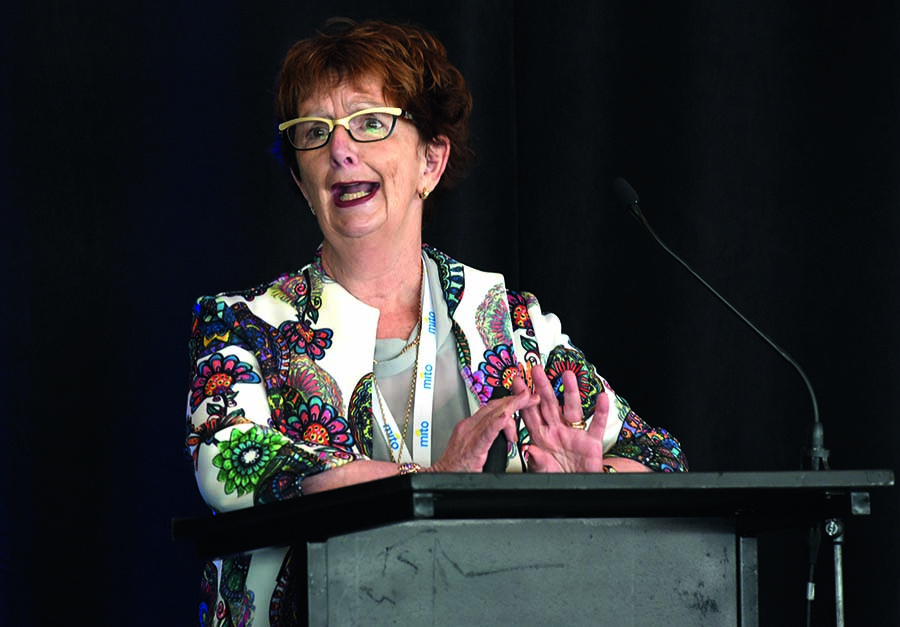Ia Ara Aotearoa Transporting New Zealand News


Plan for industry cadetship
Hundreds of operators around the country have contributed to an extremely important workforce survey recently carried out by RTF.
"The survey was begun just before the COVID-19 lockdown and, while the timing was not exactly ideal, it was really important that we pushed through and completed the process," says RTF's Nick Leggett.
"I really want to thank those operators who, in an extremely stressful period, took some time out of their day to complete the survey and contribute such valuable information.
"The data is being used to demonstrate to Government the extent of the workforce issues within our sector and will help guide solutions that the industry looks to put in place and any assistance we may get from Government to do this.
RTF is encouraged that a high proportion of survey respondents declared an interest in participating in an industry cadetship. Over the last couple of months quite a bit of work has been done with MITO on the design of the proposed scheme.
...Hundreds of operators around the country have contributed to an extremely important workforce survey recently carried out by RTF.
"The survey was begun just before the COVID-19 lockdown and, while the timing was not exactly ideal, it was really important that we pushed through and completed the process," says RTF's Nick Leggett.
"I really want to thank those operators who, in an extremely stressful period, took some time out of their day to complete the survey and contribute such valuable information.
"The data is being used to demonstrate to Government the extent of the workforce issues within our sector and will help guide solutions that the industry looks to put in place and any assistance we may get from Government to do this."
RTF is encouraged that a high proportion of survey respondents declared an interest in participating in an industry cadetship. Over the last couple of months quite a bit of work has been done with MITO on the design of the proposed scheme.
"The objective is for the cadetship to be flexible, so that it is relevant to the variety of career pathways employees may seek to follow in our industry," says Leggett.
"This includes having multiple entry and exit points within the scheme."
The cadetship will broadly comprise three stages: Foundation skills, technical skills and business skills. The Level 3 Commercial Road Transport Skills programme is seen as a foundation entry qualification for most people to enter the cadetship scheme.
Says Leggett: "We are looking at holding one or two application rounds to enter the scheme each year. This will include an online application form to be completed by the trainee applicants and their managers.
"Applicants will then be shortlisted, with an interview conducted by RTF and MITO personnel. Successful applicants will be inducted into the traineeship at a series of regional functions."
The training itself will be mostly facilitated in the workplace, with MITO-approved company assessors providing the on-job practical training, overseeing the theory learning and setting the training standard.
Theory work, including videos, interactive simulations and online theory assessments, will be completed via eLearning. Realtime results and progress reports will be available, through MITO's online portal, to both the workplace superviser and the trainee.
"Importantly, trainees will be guaranteed a minimum of 40 hours per week of work, at or above the living wage," says Leggett.
"The intention is also to set up a system of mentors who can support the trainee through the programme and complement the on-job learning support that the learner already receives."
Experienced industry mentor advisers will help learners through technical components of the programme that they are struggling with. Company mentors will provide trainees with a senior company person to turn to for advice and support. This could be their superviser, workplace assessor or another senior employee.
Iwi mentors will be available in some regions to work alongside the company mentors and industry mentor advisers, to provide additional pastoral support with an iwi focus.
"While it can be difficult in the midst of the COVID-19 crisis to focus too far into the future, it is important that we take proactive steps to mitigate the serious longterm workforce issues in our sector," says Leggett.
"This scheme, I believe, can play its part in doing that, but it will be up to operators to get on board."
More information on the road freight cadetship will be made available to industry in due course.




 + EQUIPMENT GUIDE - FREE
+ EQUIPMENT GUIDE - FREE
